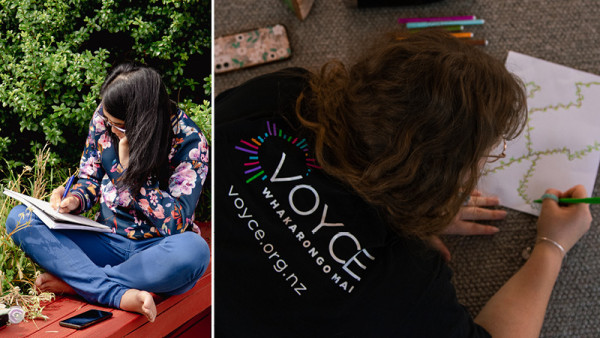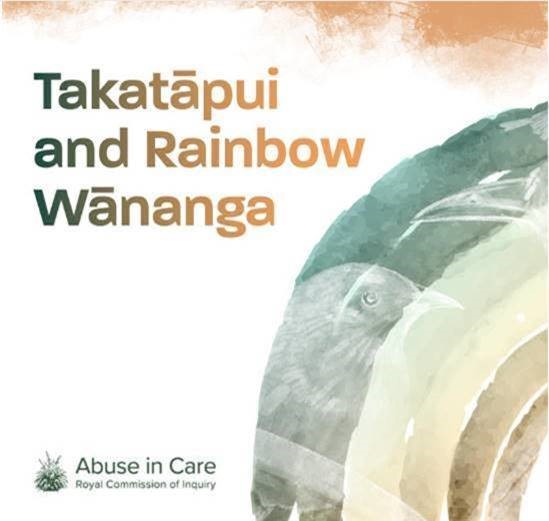Testing our thinking with survivors and communities
The Royal Commission continues to engage with groups of survivors, whānau and advocates as we progress the work on our final report.
Rangatahi

Since the beginning of this year the Commission has collaborated with VOYCE Whakarongo Mai to establish a reference group of rangatahi who have experience of the care system. This group is working together to provide advice on the recommendations that the Commission has been drafting, and identifying key messages about what is most important to them for the future of care.
Two in-person wānanga have been held this year on Papatuānuku Marae in Auckland. Over the coming weeks, the rangatahi will meet via Zoom weekly ahead of the final wānanga at the end of June in Wellington, where they will share their thoughts directly with Commissioners.
Incarcerated whānau
Over the course of the Inquiry we have engaged with incarcerated whānau (people in prison) around Aotearoa, primarily through private sessions. We have held around 200 private sessions with survivors in prison.
In April, the Commission worked with the support of Corrections to visit five prisons for group discussions with incarcerated whānau. It was an opportunity to speak with prison communities in group settings, as we have with communities outside the wire, on the themes arising from the Inquiry.
Through these engagements we spoke with 98 people. What we heard from incarcerated whānau will inform the Commission’s final report.
Takatāpui and Rainbow whānau

This month, State and faith-based survivors and advocates from LGBTQIA+, Takatāpui, MVPFAFF+, Pasifika Rainbow peoples (Rainbow communities), came together at a closed and private wānanga to share their experiences with the Royal Commission.
The wānanga was an opportunity to connect kānohi ki te kānohi following an online hui late last year. It allowed the Royal Commission to hear more voices, collective themes and solutions from survivors and advocates that will help inform its findings and recommendations in relation to Rainbow communities.
Gang whānau
In February, Hikoi Nation invited the Commission to a gang hui to listen to gang whānau speak of their experiences while in state and faith-based care.
There will be two further gang engagements over the next couple of months to hear the voices of wahine gang whānau.
In addition to this, a careful analysis of the experiences received by our gang whānau survivors will be included in a special gang report written by experts Professor Tracey McIntosh and Morgan Godfery. This will be released at a later date.
|